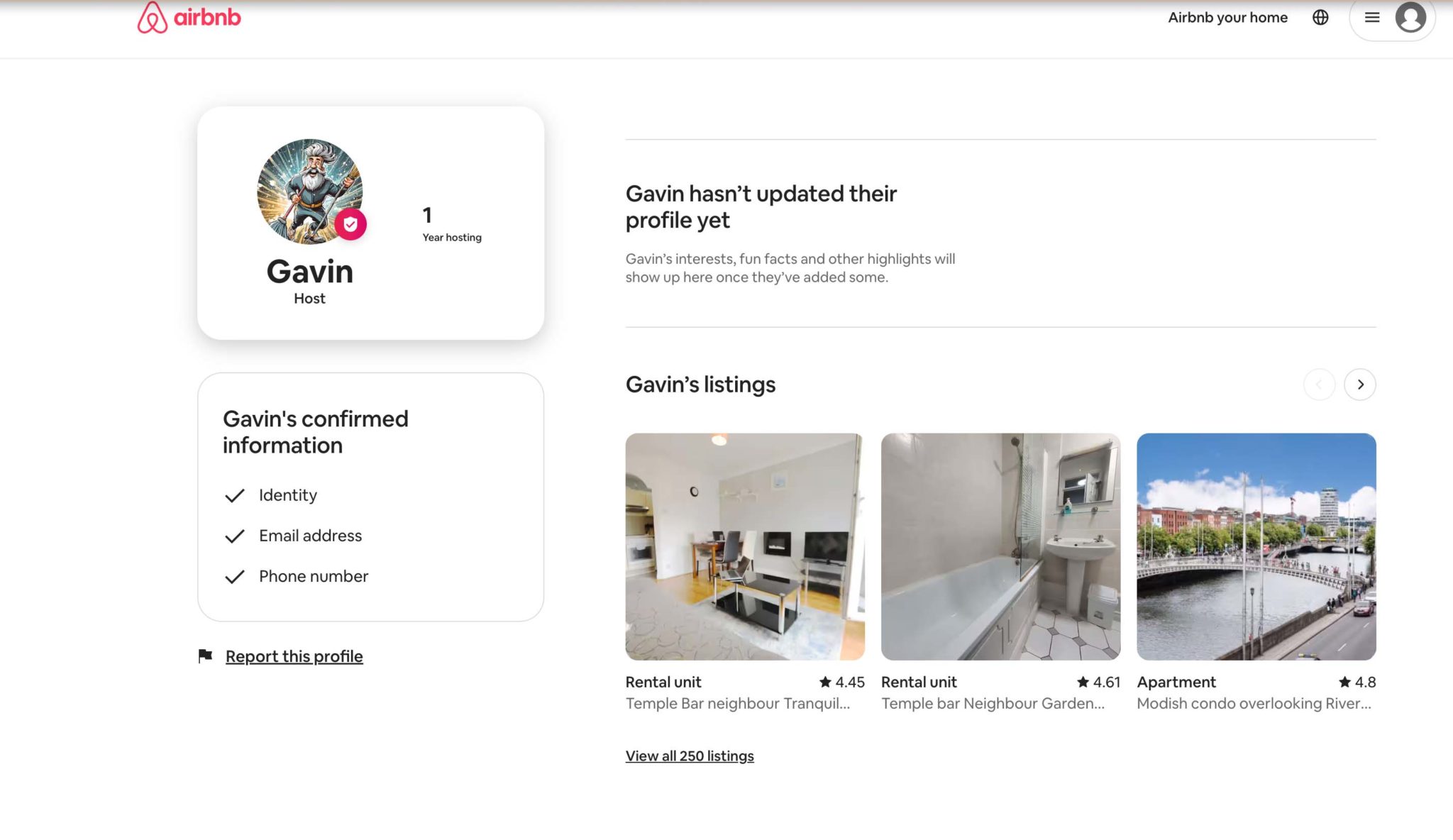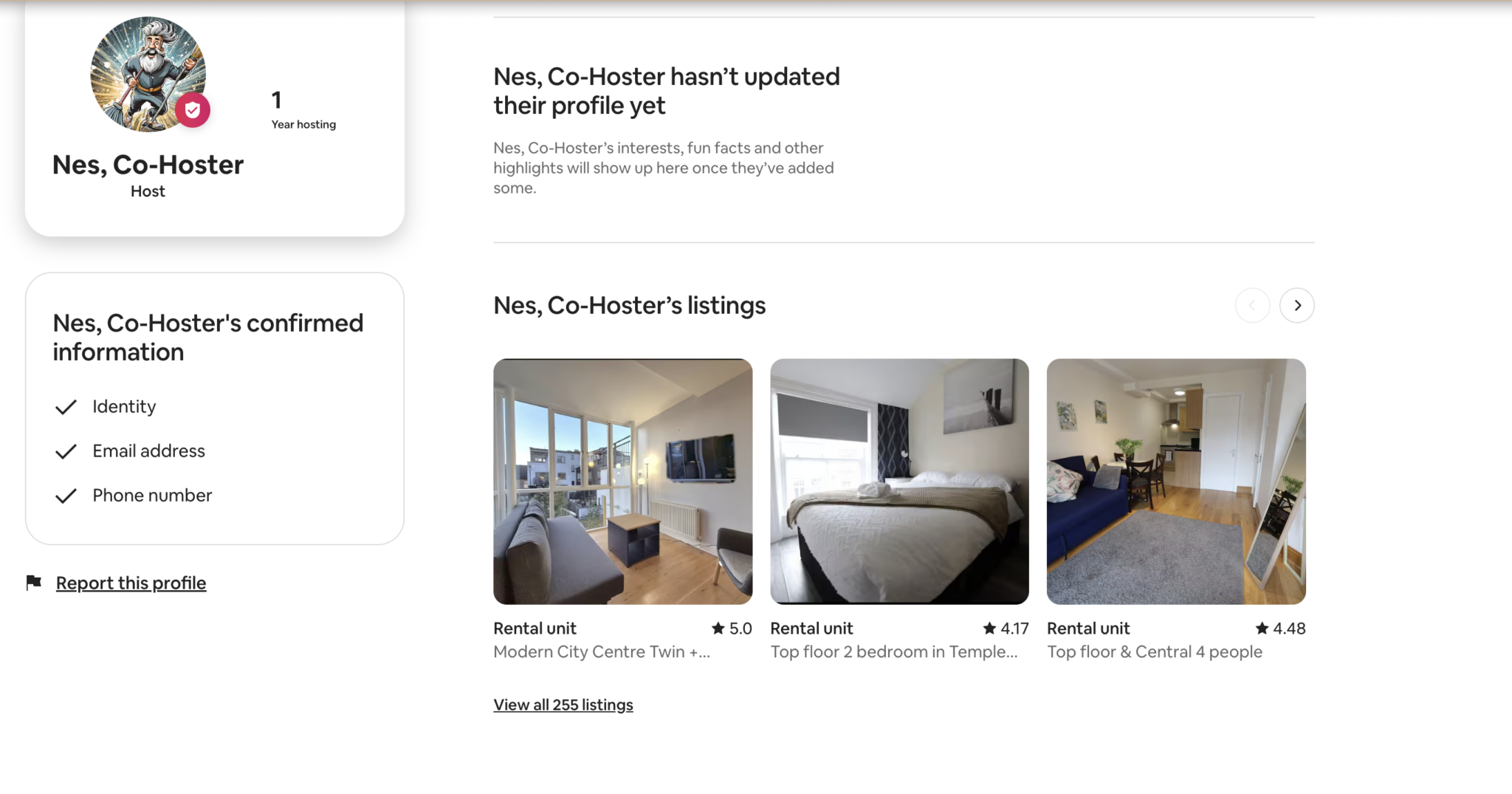- Opinion
- 26 Mar 25

A crackdown on short-term rentals has been promised by the Government. But will it happen? Dr. Lorcan Sirr explains how companies like Airbnb have been minting it, amid one of the world’s worst housing crises.
From April 14, Dublin City Council will have the power to send out their finest high-vis chainsaw operatives to remove ‘lockboxes’ from public spaces. But their mission could not be further from that of the US’s chainsaw-wielding idiot, Elon Musk.
Mainly used to store keys for Airbnb-style rentals, lockboxes have been labelled by elected councillors as ‘ugly’, ‘tripping hazards’ and, perhaps with a hint of exaggeration, a means of storing drugs and cash.
More pertinently, Sinn Féin’s Ciarán Ó Meachair pointed out that the lockboxes symbolised how, “housing has been turned over to corporate organisations such as Airbnb and short-term rentals.”
Similar sentiments are being expressed elsewhere. Last year, Barcelona announced an outright ban on short-term rentals starting from 2028, after mounting concerns that locals were being pushed out of the housing market. Vienna, New York and Paris are among the other cities to have brought in stricter laws in recent years.
Back home, the poorly regulated nature of short-term letting platforms has also come under scrutiny. At the time of writing, data from watchdog website insideairbnb.com – “a mission driven project that provides data and advocacy about Airbnb’s impact on residential communities” – shows 6,426 Airbnb listings in County Dublin. 3,561 (55%) are entire properties, like houses and apartments.
Advertisement
On Daft.ie, the country’s biggest real estate website, there are just over 1,000 rental listings advertised in the same region. The disparity can be even greater elsewhere.
“People tend to think that it’s an issue in cities,” says Dr. Lorcan Sirr, a housing policy analyst and senior lecturer at TU Dublin, who’s written extensively on the housing crisis. “Kerry (county) has 2,400 families on the housing waiting list, yet it has almost the same number of Airbnbs. You could solve your social housing waiting list if you got the Airbnbs back.”
The implications are pretty clear. While not solely responsible for the housing crisis, short-term lets have been usurping a sizeable chunk of the supply of homes in Ireland, at a time when there is a critical shortage of places for locals to live.
“And the reason is quite simple,” says Sirr. “You can make a month’s worth of rent in a week by having a listing on Airbnb, instead of being a normal landlord. And you don’t have to deal with residential tenancies, border leases or rights.”
TOURISM BENEFITS ARE DISPUTED
Airbnb was born in 2007 in San Francisco, when its then-broke founders decided to make some extra cash by renting out the air mattresses in their apartments. Now operating worldwide as the best-known company for short-term housing rentals, it has a market cap of $83 billion (€77bn).
Hosting accommodation through Airbnb has become seriously lucrative. Over half of hosts in Dublin have multiple listings on the site. One host with the username ‘Gavin’ has 250 entire properties listed at the time of writing. That’s around €150 million worth of building stock, if each of these is valued in line with average house prices in Dublin.
Advertisement

('Gavin', for whatever reason, has since changed the name on their profile to 'Nes'.)

Many short-term lets could also be operating without proper permission. Can this be true? And if so, what is the true underlying, official attitude to Airbnb?
“The guidance is that planning permission for those in Rent Pressure Zones who seek to shift to short-term letting will be refused,” Sirr says. “Planning permission is there to protect society and provide for the greater good. It’s not to protect individuals’ capacity to make extra money.”
But the shift to Airbnb is happening anyway. Insideairbnb.com shows 4,411 listings in the city of Dublin. According to figures obtained by Hot Press from Dublin City Council, just 15 applications have been successful in getting the required planning permission for short-term letting since 2019.
Advertisement
A further 866 have availed of exemptions. These apply where a person lets part of their main residence on an unlimited basis, or all of it on a limited basis – currently 90 days or less. If the property is let longer than 90 days in a calendar year, planning permission is legally required, though not always sought.
While DCC says there are limitations to insideairbnb’s accuracy, if taken at face value, the figures suggest that at least 80% of the 4,411 listings aren’t playing by the rules. Is it possible that so many could operate outside the law?
“We have a predisposition against asking people what they are doing with their properties,” Sirr continues, touching on the cultural issues he believes have allowed the problem to take root. “People are NIMBYs and objectors. So seeking permission to do something with your own property has always been something that we have been reluctant to go near culturally as a nation, but also in terms of regulation.
“When we have brought legislation in, we don’t enforce it,” he adds. “So that has led to a free-for-all, where people can have a fair expectation that they’re going to get away with doing things. So into that space move the likes of Airbnb and Uber. These companies exploit gaps in regulation.”
Proponents of short-term letting platforms will argue there are benefits for local economies through tourism. Airbnb has worked hard to plead their case in Ireland. Since 2016, the Lobbying Register lists 85 instances in which the tech giant has lobbied officials.
However, those alleged benefits are disputed. According to a 2019 report by the Economy Policy Institute, a non-profit US think-tank, “There is little evidence that cities with an increasing supply of short-term Airbnb rental accommodations are seeing a large increase in travellers.”
LANDLORDS WILL FACE FINES
Advertisement
Surveys have also indicated that only 2-4% of those using Airbnb say that they would not have taken the trip if their Airbnb rentals were unavailable. So the model is actually significantly damaging the regulated accommodation sector.
“Airbnb assists with the tourist industry,” Sirr notes, but clearly it is marginal.
“What we never look at is the other side of the coin,” he reflects. “Like, what does it cost us to have all these Airbnbs around the country, when they’re sucking up supply and pushing up rents for people living in Ireland, because there’s not enough rental properties around?”
There are other hidden social impacts on communities that also evade scrutiny.
“What happens is that you buy an apartment and somebody else comes around and buys the next three, and turns them into Airbnbs,” Sirr reflects. “You would have had a reasonable expectation for a quiet and peaceful life in your new apartment, and next thing every weekend or every night, there’s different people staying next door. You have hen parties, stag nights and all sorts going on.
“Airbnb will say it’s nothing to do with them, and you’re tearing your hair out going, ‘What the hell, I didn’t sign up for this’. It’s the same as Twitter and Facebook saying, ‘We’re just a platform, we’re not a publisher, so we’re not responsible for the content’.”
Lorcan Sirr is blunt in his assessment of the politics involved.
Advertisement
“It’s up to governments to regulate,” he says. “The government has to decide between supporting the short-term tourism industry or putting the Irish people in accommodation.”
In April 2024, the EU adopted a policy on Short Term Rental (STR) Regulation, due to come into effect in May 2026. Meanwhile, the Dáil has been progressing the Short Term Tourist Letting Bill – initiated as far back as 2022 – very, very slowly.
The current draft legislation will provide that anyone who rents out a property or room within a home for 21 nights or less will have to register with Fáilte Ireland.
The register looks to enforce a 2019 requirement for those letting out entire houses or apartments in Rent Pressure Zones on platforms like Airbnb to obtain planning permission for a change of use.
If the legislation goes ahead in its current form, landlords who fail to register will face fines of up to €5,000. Short-term letting websites like Airbnb could also face fines if they don’t remove ads for unregistered properties.
“The department estimates that the new bill will bring an additional 12,000 units back into the housing stock,” Sirr says. “To put it into context, that’s 150% of the amount of new housing that came to the market last year. What I mean by that is that – while we built 30,000 houses in 2024 – only about 8,000 ended up in your local estate agent window.
“The rest was one-off housing, social housing or build-to-rent. So if we got 12,000 back from short-term renting, that would be a year-and-a-half supply of brand new housing into the market, which would be quite an achievement.”
Advertisement
The question now is: will the government move with the necessary urgency?
As the wag said, I wouldn’t bet my non-existent house on it.








